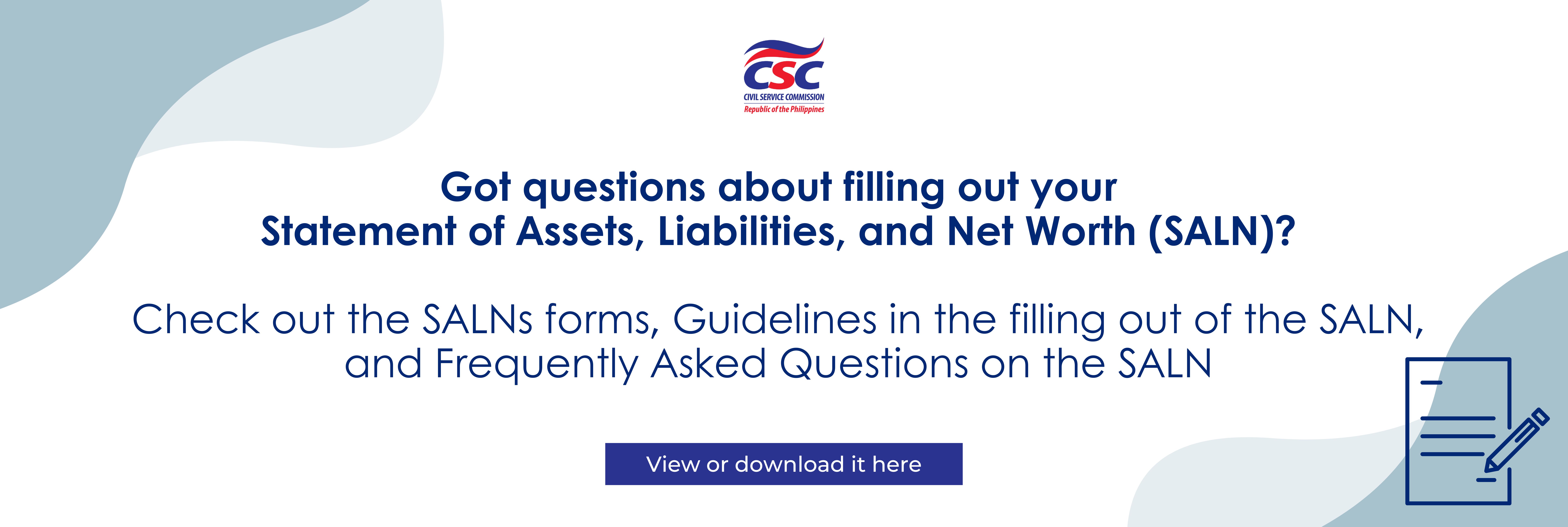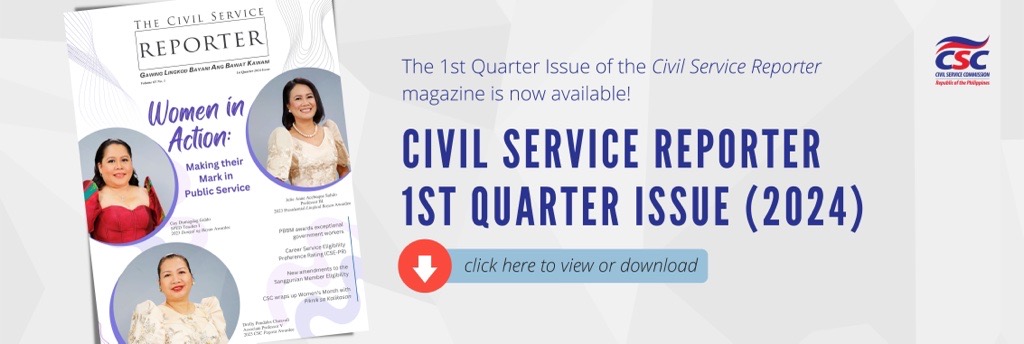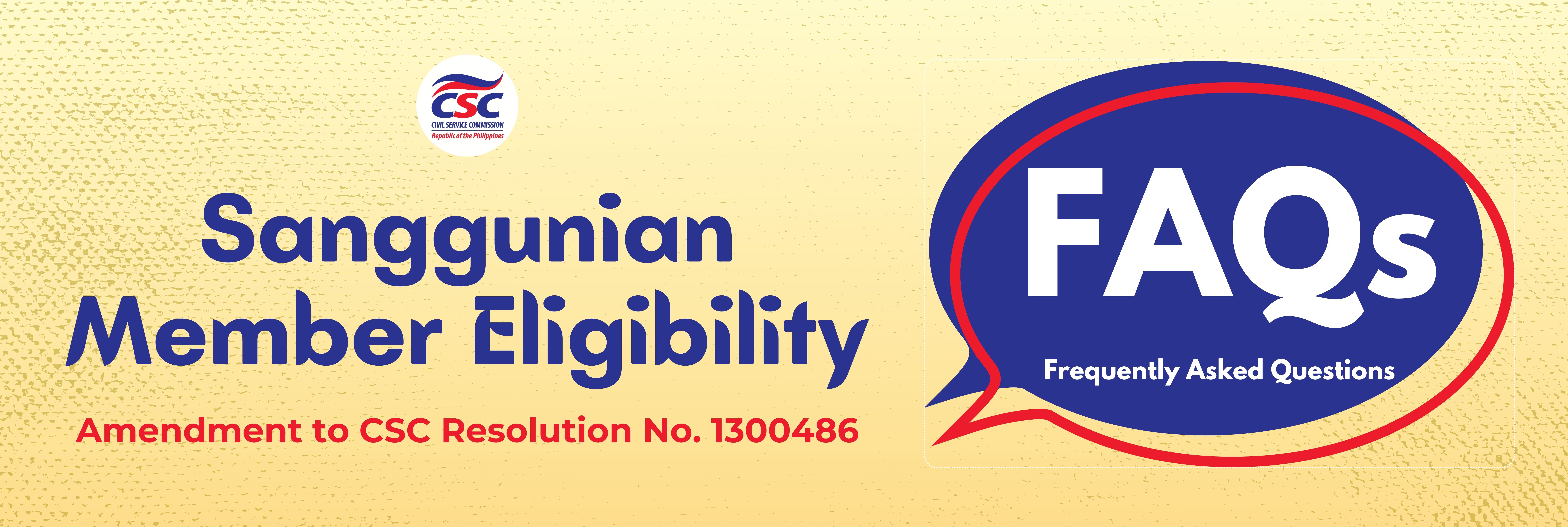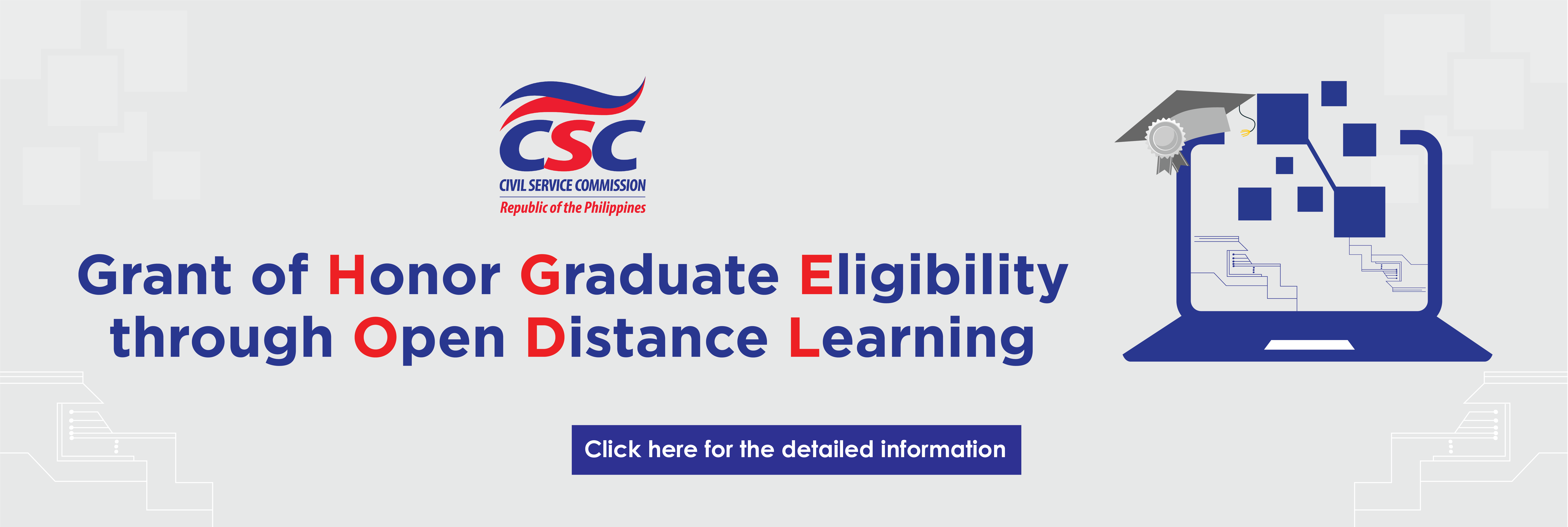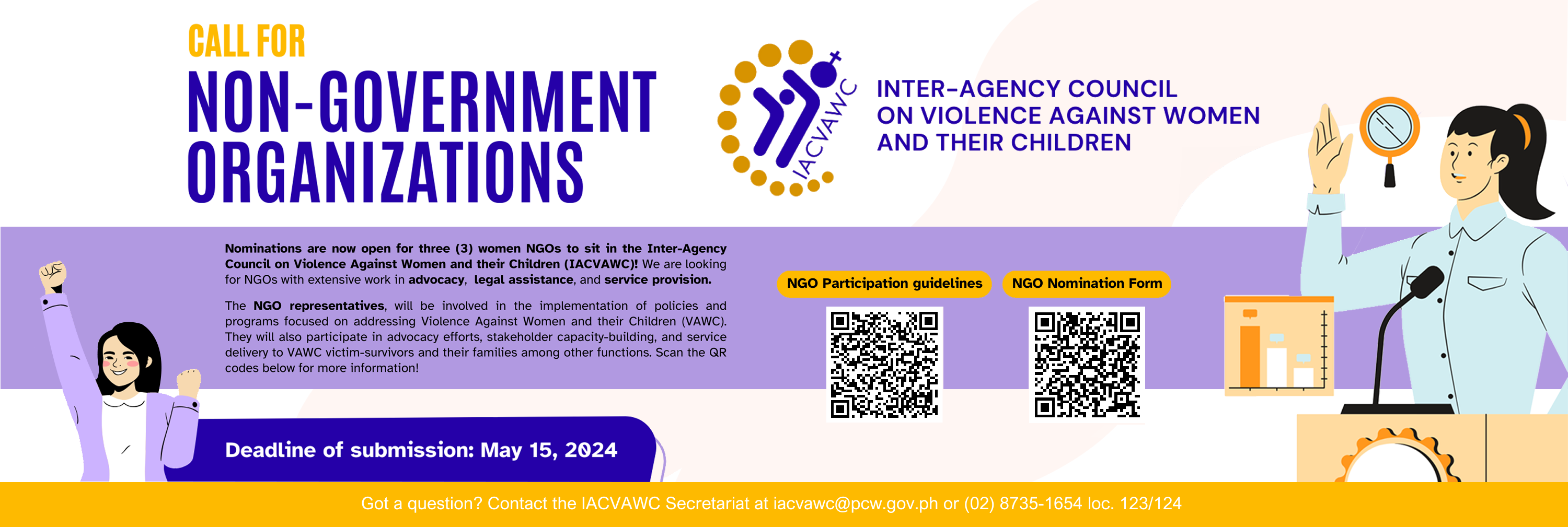- Details
As the nation celebrates Women’s Month this March, the Civil Service Commission (CSC) urged government agencies to consider the unique needs of women in the workplace.
The CSC said that more women are now engaged in professional work, even if their domestic roles remain prominent.
In the latest Inventory of Government Human Resources, statistics show that there are slightly more women than men in the civil service. Out of 1,728,641 government workers, 50.88% are female while 49.12% are male.
- Details
The Civil Service Commission (CSC) reminds examinees to prepare for the upcoming Career Service Examination-Pen and Paper Test (CSE-PPT) set on 15 March 2020.
Examinees should check their school assignments through the CSC’s Online Notice of School Assignment (ONSA), enosa.csc.gov.ph/eNOSAv3/, posted on the CSC website. Those who will encounter problems accessing and obtaining school details from ONSA should directly call the CSC Regional or Field Office where they filed their application or contact the CSC’s Contact Center ng Bayan or send a message through the CSC Facebook Page, @civilservicegovph.
As a precautionary measure to prevent the spread of COVID-19 (Coronavirus disease 2019), examinees who exhibit flu-like symptoms on the day of exams are advised not to take the tests. For more information on this, please read our previous news release here. Test administrators/examiners and examinees are also allowed to use face mask and bring alcohol-based hand sanitizers on examination day.
Read more: Examinees advised to prepare for 15 March Career Service Exam
- Details
As the Civil Service Commission (CSC) reiterates its call for government agencies and their employees to take necessary precautionary measures to prevent the spread of the coronavirus disease-2019 or COVID-19 in the workplace, it released interim guidelines on the use of leave credits for absences due to self-quarantine and/or treatment relative to COVID-19.
CSC Memorandum Circular No. 5, series of 2020 issued yesterday, provides the guidelines for the availment of leave for public sector employees as well as ensure that precautionary measures are employed in government offices to avoid the spread of the virus in the workplace.
Public sector officials and employees whether permanent, temporary, provisional, substitute, coterminous, casual, contractual or fixed term who feel sick with COVID-19 like symptoms or have been exposed to persons infected with the virus are directed to immediately inform their supervisor; voluntarily seek immediate medical attention and/or go on self-quarantine, upon the advice and certification of a licensed physician.
- Details
The Civil Service Commission (CSC) reminds government agencies to grant claims for benefits under Republic Act No. 11210, also known as the 105-Day Expanded Maternity Leave Law, to women who gave live childbirth, or sufferred miscarriage or emergency termination of pregnancy on 11 March 2019 and thereafter.
R.A. 11210 took effect on 11 March 2019 and thus applies to instances of live childbirth, miscarriage, or emergency termination of pregnancy that occurred starting from said date. The CSC, Department of Labor and Employment, and Social Security System recently issued a joint clarificatory statement explaining that the date of effectivity of the law is 15 days after the publication of R.A. 11210 in a newspaper of general circulation. The law was published on 23 February 2019.
The statement corrects the misconception that the effectivity date of the law is based on the publication date of the Implementing Rules and Regulations (IRR). The IRR was issued on 1 May 2019 and published in a newspaper of general circulation on 3 May 2019.
Read more: Gov’t issues clarification on 105-day maternity leave
- Details
Government employees who have left the service may request to claim their terminal leave benefit any time, the Civil Service Commission (CSC) announced.
In CSC Resolution No. 1901392, the Commission amended Section 38 of the Omnibus Rules on Leave providing a prescriptive period of 10 years within which to file a request or claim for payment of terminal leave benefit.
Section 38 now reads: “Request for payment of terminal leave benefits may be brought any time after the official/employee severed his/her connection with his/her employer.”
Read more: Prescriptive period to claim terminal leave benefit scrapped

